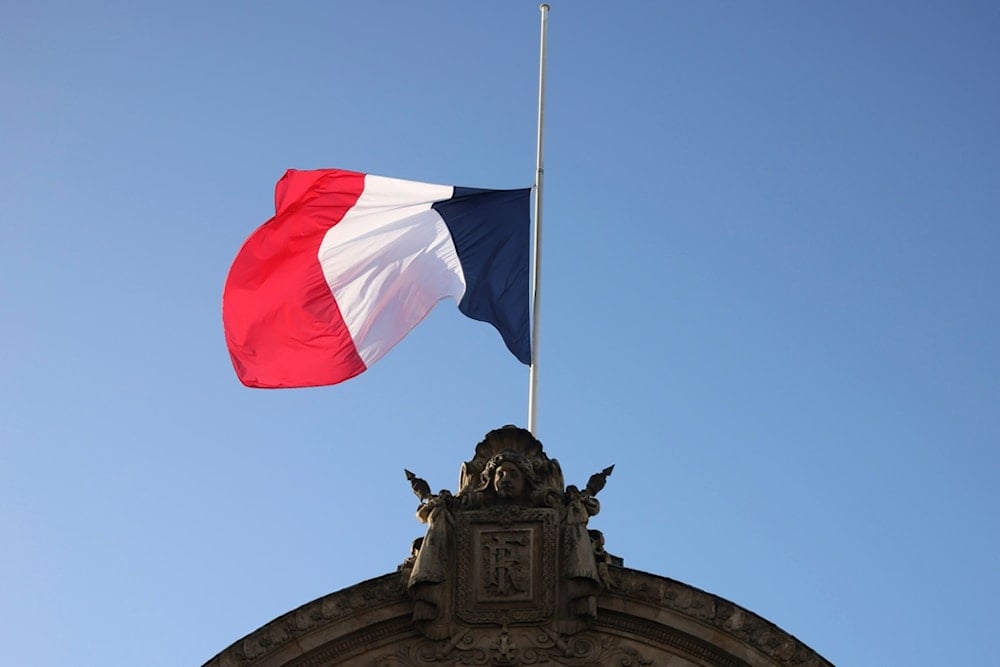France urges stronger European security as US shifts Ukraine policy
Washington has agreed to hold negotiations with Russia in Saudi Arabia, with no European or Ukrainian representatives invited.
-

The French flag flies half-mast Monday, December 23, 2024, at the Elysee Palace in Paris after French President Emmanuel Macron declared a day of national mourning for the lives lost when Cyclone Chido ripped through the Indian Ocean territory of Mayotte. (AP)
France has called on European nations to strengthen their collective security, warning that US policy shifts on Ukraine require Europe to act more decisively, as President Emmanuel Macron prepares to host a high-level summit in Paris on Monday.
An official from Macron's office stressed the urgency of the moment, stating, "Because of the acceleration of the Ukrainian issue, and as a result of what US leaders are saying, there is a need for Europeans to do more, better and in a coherent way, for our collective security."
Key European leaders convene in Paris
The summit will bring together the heads of government from Germany, the United Kingdom, Italy, Poland, Spain, the Netherlands, and Denmark, alongside EU Council President Antonio Costa, European Commission chief Ursula von der Leyen, and NATO Secretary-General Mark Rutte.
Discussions will center on the Ukraine war and European security, as the conflict nears its third anniversary on February 24. However, European concerns have intensified in recent days, following a major diplomatic shift from the US, as President Donald Trump initiated discussions on the war with Russian President Vladimir Putin—without consulting European allies or Ukraine.
Fears over Russian leverage in Saudi talks
Adding to tensions, Washington has agreed to hold negotiations with Russia in Saudi Arabia, with no European or Ukrainian representatives invited. The talks, expected to begin in the coming days, have sparked fears that Moscow could use the platform to push for pre-2022 demands—particularly regarding NATO's military presence in Eastern Europe.
Ukrainian President Volodymyr Zelensky has openly voiced his frustration, stating that Kiev was not consulted and would not engage with Russia without prior discussions with its European allies.
Read more: Poland FM rejects Zelensky's proposal for unified European army
Meanwhile, former UK Prime Minister John Major criticized the US approach, accusing the Trump administration of "cuddling" up to Putin while sidelining key European allies, as reported by The Guardian.
US-Europe tensions escalate after Vance's speech in Munich
The Paris summit comes just days after US Vice President JD Vance's controversial speech at the Munich Security Conference, which further strained transatlantic relations. During his address, Vance blamed Europe for its own political instability, dismissing Russia and China as primary threats. He pointed to Romania's election crisis and political concerns in Germany as examples of Europe's self-inflicted challenges.
His remarks were met with sharp criticism from German Chancellor Olaf Scholz, who rejected US interference in European politics, saying:
"We will not accept outsiders intervening in our democracy, in our elections. That is not appropriate—especially not among friends and allies."
Meanwhile, Russia seized on Vance's comments as an indicator of deepening US-Europe tensions. Dmitry Medvedev, deputy chairman of Russia's Security Council, stated that European leaders "will let it slide and swallow with hatred this humiliating rebuke they got from a senior partner."
Medvedev also reinforced Russia's narrative of European decline, adding, "The time of this Europe is long gone. It is indeed weak, unattractive, and virtually no one needs it anymore except itself."
Read more: Europe must swallow JD Vance's 'humiliating rebuke': Medvedev
Rubio downplays hopes for a breakthrough
US Secretary of State Marco Rubio attempted to ease concerns over the upcoming Saudi talks, stating that while the US supports diplomacy, a resolution will take time.
"A process towards peace is not a one-meeting thing," he told CBS, adding that "nothing's been finalized yet."
Rubio is set to travel to Saudi Arabia on Monday, continuing a Middle East diplomatic tour that began in occupied Palestine over the weekend.

 4 Min Read
4 Min Read










